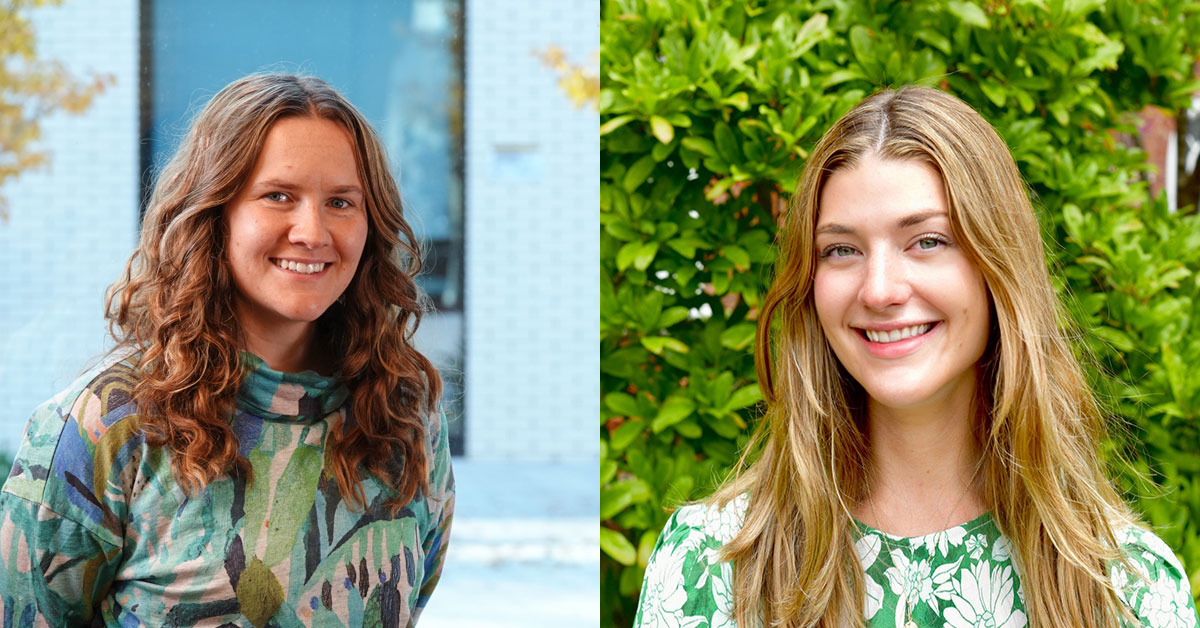Two researchers awarded Mike Smith Student Prize for insightful essays
- 3 mins read


Jessica Urwin (left) and Margaret Williams are joint winners of the 2021–22 Mike Smith Student Prize. Images supplied.
Explorations of the history of disease and of nuclear colonisation have earned two researchers the 2021–22 Mike Smith Student Prize for History of Australian Science or Australian Environmental History.
‘The poison, leave it’
Jessica Urwin is working toward her doctorate at the Australian National University, researching the history of nuclear colonialism throughout the 20th century. Her focus is on how Australia’s nuclear industry, including uranium and radium extraction, nuclear weapons testing, and radioactive waste disposal, has intersected with colonialism in South Australia.
Her essay submitted for the prize, ‘No Time to Waste: Aboriginal resistance to Australia’s nuclear waste, 1998–2004’, follows senior women of the Kupa Piti Kungka Tjuta group and their campaign Irati Wanti – ‘the poison, leave it’ – between 1998 and 2004.
“This grassroots campaign was organised by these women in response to Prime Minister John Howard’s proposal to establish a nuclear waste dump on their Country in the late 1990s. Through examining the key messages of the women’s campaign, my essay seeks to expose some of the tensions between desert and urban communities in relation to radioactive waste storage and disposal in Australia,” Ms Urwin said.
“Dr Mike Smith’s books, Peopling the Cleland Hills and The Archaeology of Australia’s Deserts were integral to my essay. His call to scholars to ‘people’ the desert, pushing back against the historic settler tendency to consider Australia’s desert landscapes ‘unpeopled’, is at the heart of this work, and is the key message put forward by the Kupa Piti Kungka Tjuta around whom my essay revolves.
“Accepting that desert landscapes are peopled is vital to acknowledging the disproportionate impacts of the nuclear order borne by Indigenous communities the world over. Such considerations are important for both environmental historians and historians of science,” she said.
Inspired by scholars
Joint prize-winner Margaret Williams is a research fellow at the National Institutes of Health (USA) studying the history of 20th century infection control policies as well as conducting clinical research on chronic lung infections.
“My work builds on many of the interests I developed writing my essay, ‘Biopolitics and the Bacillus: Sinophobia in an Epidemic of Bubonic Plague in Sydney, 1900–10’, especially historicising the relationships between body and space in conceptualising disease and in particular personal culpability for disease transmission,” Ms Williams said.
“Amidst the challenging research conditions of a pandemic – whose challenges led me to pursue this work – this prize has encouraged me to continue interrogating the ties between race, disease and national belonging.
“As I learned to read against epidemiological reports for this essay to chart the complex social relations influencing plague’s path through Sydney, I have been inspired by the community of scholars who guided this essay. I am grateful to Dr Mary Brazelton at Cambridge for her mentorship and support, as well as to the librarians at the University of New South Wales as I worked to access sources which were otherwise inaccessible during lockdown,” she said.
Both researchers expressed how much of an honour it was to receive the Mike Smith Prize.
Find out more about the 2021-22 prize, and the criteria used to select the winning entry.
The next round of the Mike Smith Student Prize will be in 2023–24, with entries opening late in 2023.





